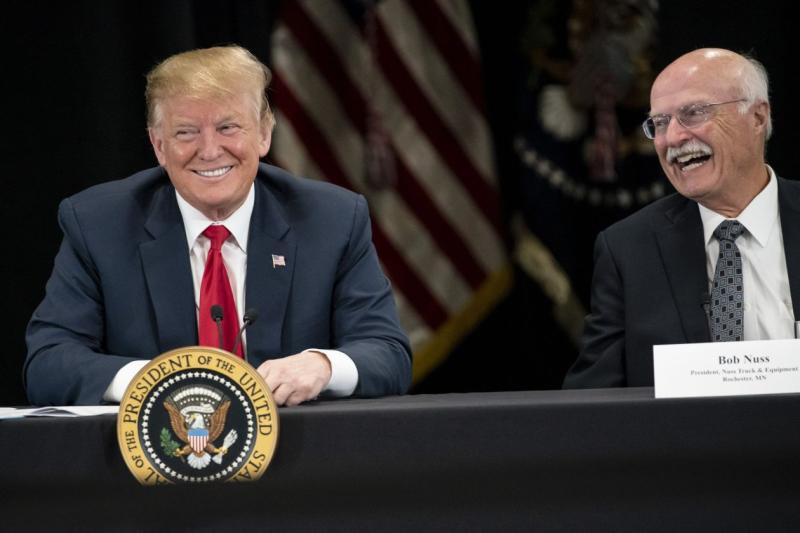Has the Recession Been Cancelled?



What would we do without experts? As U.S. workers continue to enjoy a vibrant job market, they should spare a thought for laborers in one category of professional services who remain mired in a multi-year slump. Established manufacturers of Keynesian economic forecasts have entered a prolonged period of secular stagnation. Some may even wonder if they can ever break out of a “new normal” of declining prestige.
At the New York Times recently, economist Paul Krugman valiantly attempted to overcome his history of underrating American potential by making another call on tax policy and the macroeconomy. On April 8, Mr. Krugman wrote about one of President Trump’s signature policy achievements:
...his one major legislative success, the 2017 tax cut — which he predicted would be “rocket fuel” for the economy — has turned out to be a big fizzle, economically and, especially, politically.
It’s true that U.S. economic growth got a bump for two quarters last year, and Trumpists are still pretending to believe that we’ll have great growth for a decade. But at this point last year’s growth is looking like a brief and rapidly fading sugar high.
Today New York Times colleague Ben Casselman helps to set Mr. Krugman straight:
Rumors of the economic expansion’s death appear to have been greatly exaggerated.
Gross domestic product, the broadest measure of goods and services produced in the economy, rose at a 3.2 percent annual rate in the first three months of the year, the Commerce Department said Friday. That is significantly better than most economists expected, and far better than the dour forecasts of early this year, when many forecast a near stall in growth.
While we can all celebrate the current expansion of U.S opportunity, forgive Harvard’s Larry Summers if he finds the latest news less than entirely pleasant. A former Clinton and Obama economic adviser, Mr. Summers wrote in May of 2017 in the Washington Post:
Details of President Trump’s first budget have now been released. Much can and will be said about the dire social consequences of what is in it and the ludicrously optimistic economic assumptions it embodies. My observation is that there appears to be a logical error of the kind that would justify failing a student in an introductory economics course.
Apparently, the budget forecasts that U.S. economic growth will rise to 3.0 percent because of the administration’s policies — largely its tax cuts and perhaps also its regulatory policies. Fair enough if you believe in tooth fairies and ludicrous supply-side economics.
Sadly Messrs. Summers and Krugman have had plenty of company in struggling to predict U.S. economic performance. It seems that a significant portion of the Beltway economic forecasting sector has had some strange inability to recognize the potential of non-government-directed investment. Today the White House Council of Economic Advisers notes :
We see in today’s advance estimate of real GDP growth in the first quarter of 2019 that the economy continues to outperform expectations... in their final longer-term forecasts before the November 2016 election, the Congressional Budget Office and the Federal Open Market Committee on average projected four-quarter real GDP growth in 2017, 2018, and 2019 of 2.2, 2.0, and 1.7 percent, respectively. In actuality, real GDP grew 2.5 percent in 2017, 3.0 percent in 2018, and in the first quarter of 2019 grew at an annualized rate of 3.2 percent.
Recently there also seems to have been some inexplicable tendency among esteemed left-leaning economists to overemphasize the economic damage caused by a partial shutdown of the federal government. The outstanding report on first quarter growth had this column—and perhaps a few other Americans—wondering if perhaps we should hope for more such governmental interruptions. The White House says no, arguing that Commerce Department data suggest that the first quarter could have been even better:
In the absence of residual seasonality and the government shutdown, real GDP growth in the first quarter of this year might have been up to 1.2 percentage points higher, implying... annualized growth rates of 4.4 percent.
Let’s not go overboard. As Don Luskin of Trend Macrolytics points out, beneath today’s headline GDP number, growth in consumer spending and business investment was not as strong as we’d like. But overall the economy continues to show a remarkable vitality that has been especially surprising to the Democratic economic establishment.
It can even be a tad embarrassing. It’s one thing to express pessimism about America in a column. How would you like to have scheduled an entire event dedicated to discussing a pending economic disaster and then have to read today’s blowout GDP report?
The esteemed Brookings Institution recently announced a May event, “Preparing for the next recession: Policies to reduce the impact on the U.S. economy.” This came complete with a roster of credentialed declinists and an official Twitter hashtag: #RecessionReady.
All that’s missing is a sign of recession. Harriet Torry reports in the Journal on the optimism among corporate executives, including JPMorgan Chase & Co. Chief Executive Jamie Dimon:
“People are going back to the workforce. Companies have plenty of capital,” he said, adding that “business confidence and consumer confidence are both rather high…it could go on for years. There’s no law that says it has to stop,” he said.
The Brookings gang should take those words to heart, and realize that while times may be tough in the industry dedicated to forecasting doom, most of the country is doing much better.
Tags
Who is online
73 visitors

Good, now we can start paying down our debt.